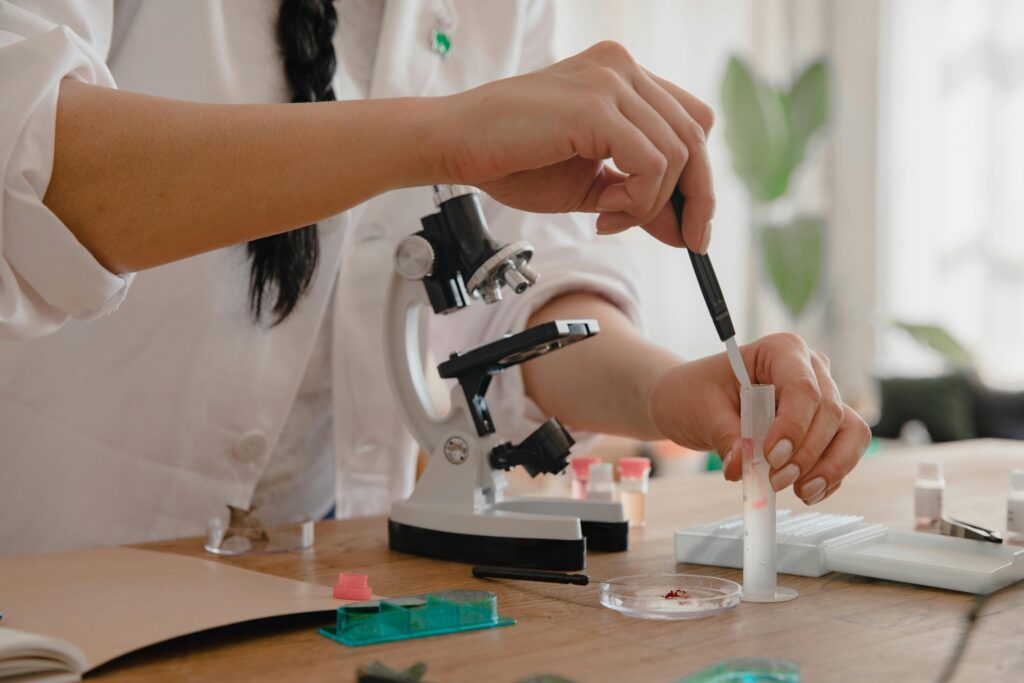
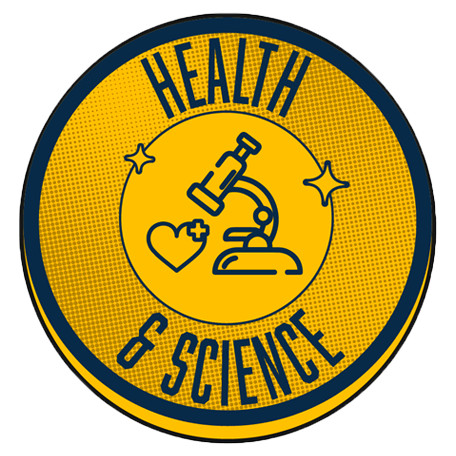
Clinical Laboratory Science (BA)
A high-demand career dedicated to finding answers.
Clinical laboratory science is an exciting allied health field dedicated to helping medical professionals find answers through diagnostic testing. There are many roles involved in collecting, preparing, and analyzing lab samples, from phlebotomist to histotechnician to medical laboratory assistant. In addition to formal training, many specialized lab technician and technologist positions require national certification. Mary Baldwin prepares you for the national registry exam through rigorous academics and a year-long clinical placement in an NAACLS-accredited medical laboratory scientist program at a partner healthcare facility.
- Time to Completion4 years
- FormatOn Campus
- Degree(s)Bachelor of Arts
- SpecializationsBiology Emphasis Chemistry Emphasis
- NeighborhoodHealth & Science
Next steps
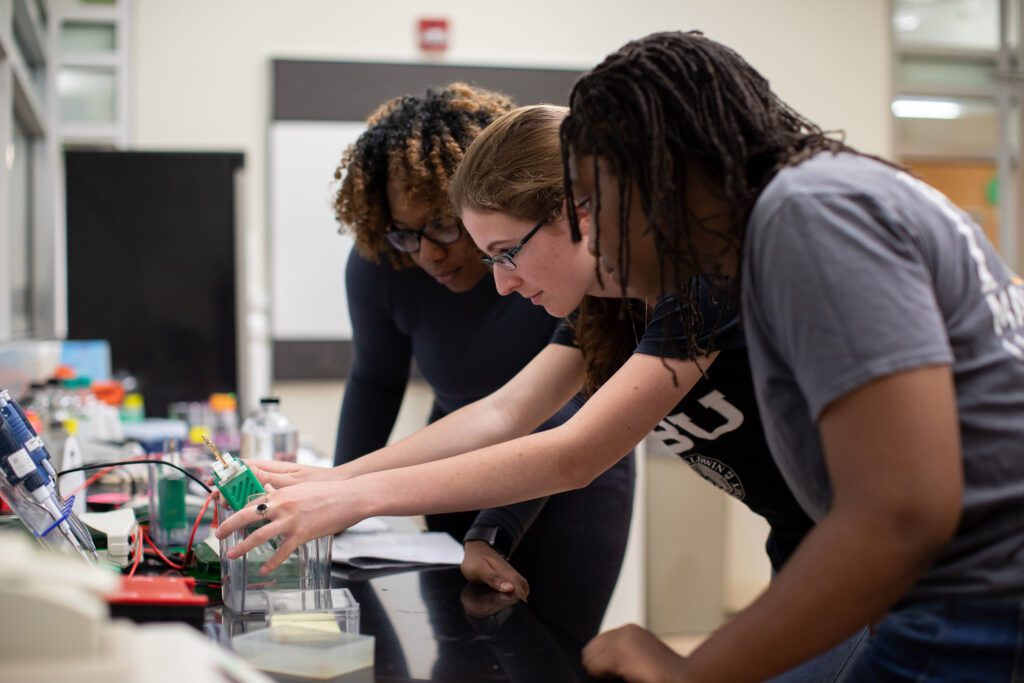
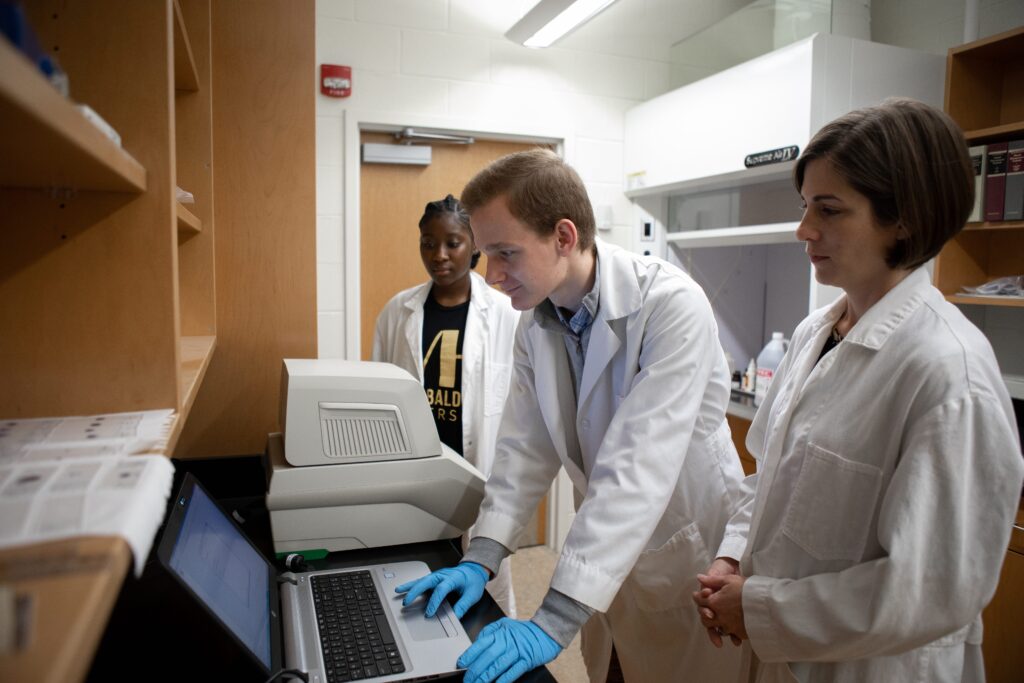
Why study clinical laboratory science at Mary Baldwin?
As a leader in health sciences education, Mary Baldwin provides a rigorous science education to prepare students for a clinical placement and the national registry exam.
Features & Benefits
- Small class sizes and personalized attention
- Two emphasis areas to choose from: biology or chemistry
- Professional lab experience through a 12-month clinical placement
- Plenty of on-campus, health professions-related clubs and organizations, such as the American Chemical Society
- Strong industry partnerships across the region
Year-long clinical placements
The final aspect of your clinical laboratory science education is a 12-month clinical training placement at a local healthcare facility. As you rotate through different labs, you’ll interact with lab professionals and medical practitioners — and develop valuable skills and professional relationships along the way.
All partner clinical sites are fully accredited and house National Accrediting Agency for Clinical Laboratory Sciences (NAACLS)-accredited clinical laboratory scientist programs; they include:
- Augusta Health in Fishersville
- Sentara Rockingham Memorial Hospital in Harrisonburg
Your rotations will include a variety of different labs, including histotechnology, hematology, urinalysis/body fluids, blood bank, immunology/serology, microbiology, and clinical chemistry.
Next steps

Explore the Neighborhood
This major is part of the Health & Science Neighborhood. Neighbors live together their first year, study and take classes together, and enjoy special curated activities.
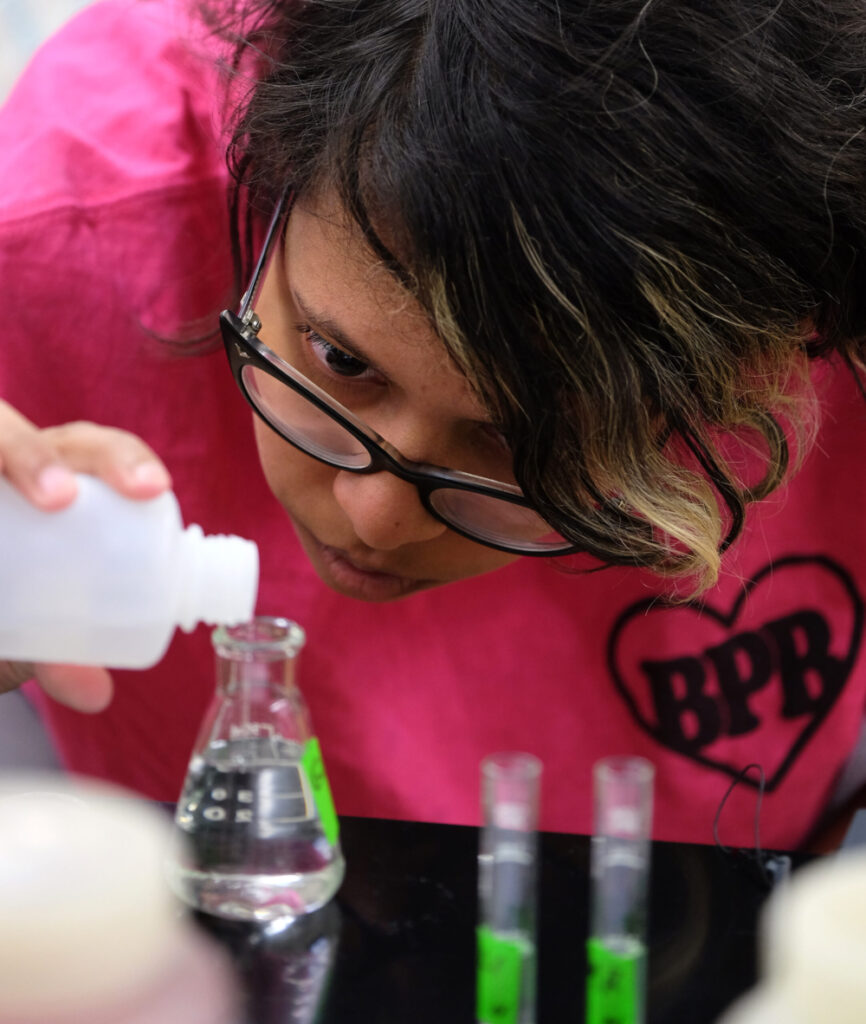
What You’ll Learn
Before you embark on your year-long clinical placement, you’ll build a foundation in chemistry and biology through core courses. You’ll round out your major requirements with electives from your chosen emphasis areas (either biology or chemistry).
Sample core and elective courses include:
The basic biology of bacteria and other microbes, with an emphasis on metabolic diversity, the disease process, and microbial ecology. The laboratory introduces methods for microbial culture and identification through student-designed experiments. Lecture and lab.
The physiology, cell biology, genetics, and health implications of the immune system, with an emphasis on experimental evidence and the reasoning behind our current understanding.
A survey of organic chemistry, using the functional group approach, emphasizing the properties, stereochemistry, preparative methods, and reaction mechanisms of the following principal classes of organic compounds: alkanes, alkenes, alkynes, alkyl halides, and arenes. In the associated lab, students develop competence in organic synthetic work, and in analysis of their products using modern spectroscopic instrumentation.
Where you’ll go after graduation
A degree in clinical laboratory science — sometimes referred to as medical laboratory science — opens the door to careers in a range of lab settings, including within hospitals, outpatient facilities, research centers, and even law enforcement agencies. Titles and responsibilities will vary from place to place, but some recent alumni examples include:
- Specimen management tech
- Field and laboratory technician
A degree in clinical laboratory science can also serve as a foundation for further study in the life sciences, such as earning a master’s or PhD in epidemiology, entomology, biochemistry, or public health administration.
Looking ahead to graduate school, Mary Baldwin’s Murphy Deming College of Health Sciences offers several master’s and doctoral programs. MBU undergraduate students are able to take advantage of a guaranteed interview program at Murphy Deming.
Next steps
Our Faculty
Our faculty are deeply invested in the academic and professional success of our students. With a passion for teaching, these educators go above and beyond, providing mentorship, personalized guidance, and exciting hands-on research opportunities.
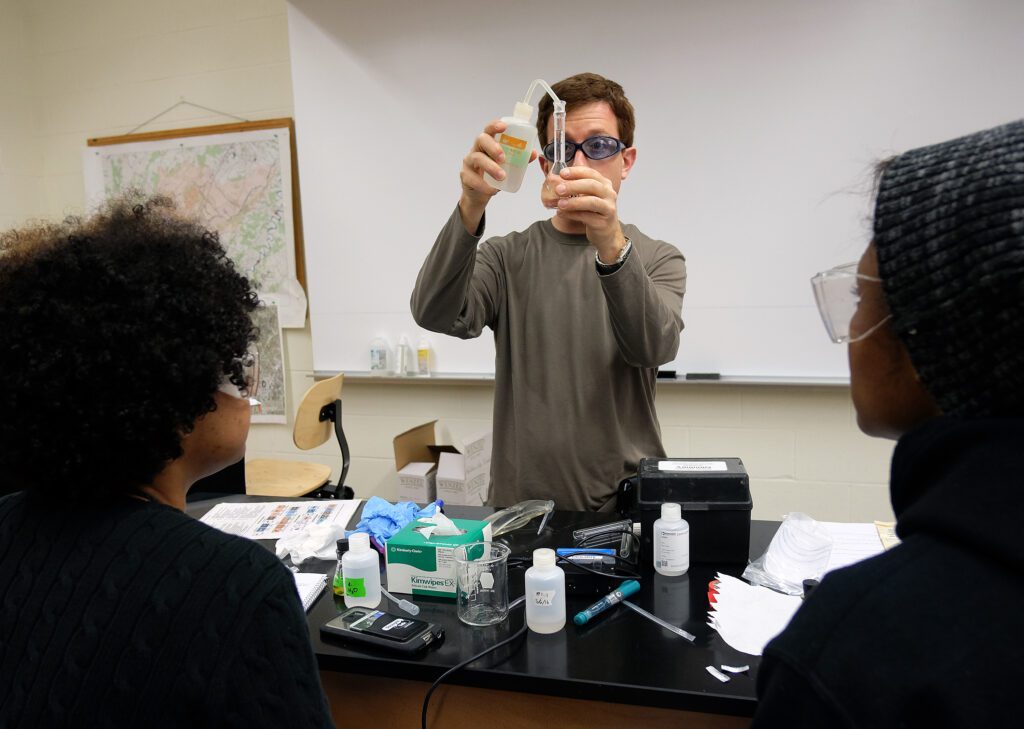
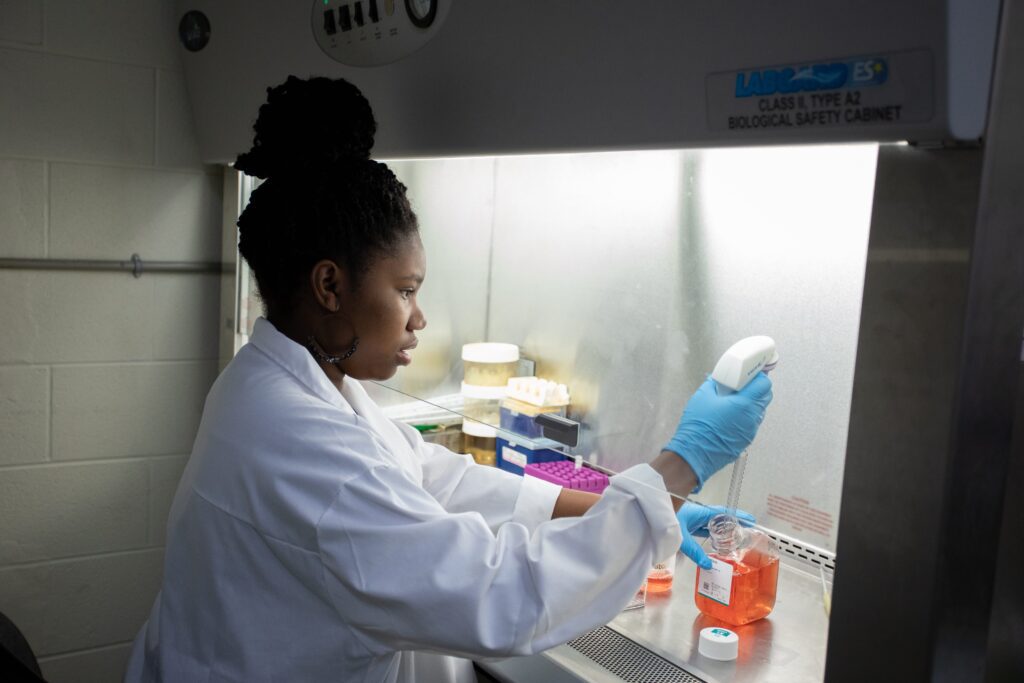
Cost & Financial Aid
A great education is worth it. Mary Baldwin offers generous financial aid packages and a broad range of scholarships to help you bring your aspirations to life.
MBU also lets you fast-track your path to a bachelor’s degree with the opportunity to transfer up to 18 credits (6 courses) through direct course equivalents from the Virginia Community Colleges System.
A bachelor’s degree requires 120 credit hours of study.